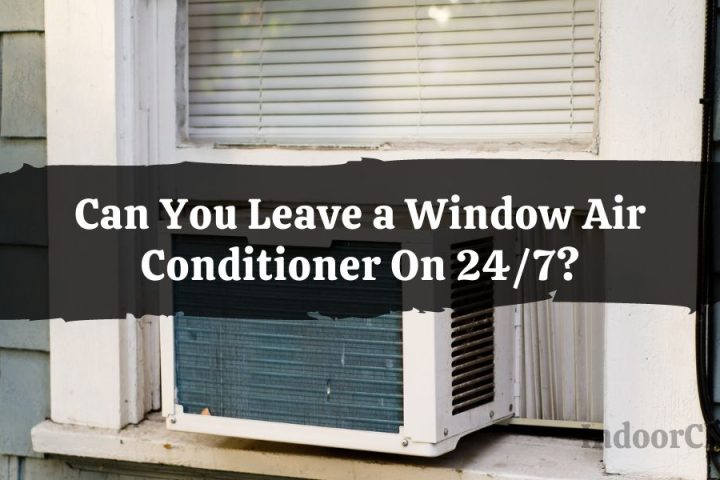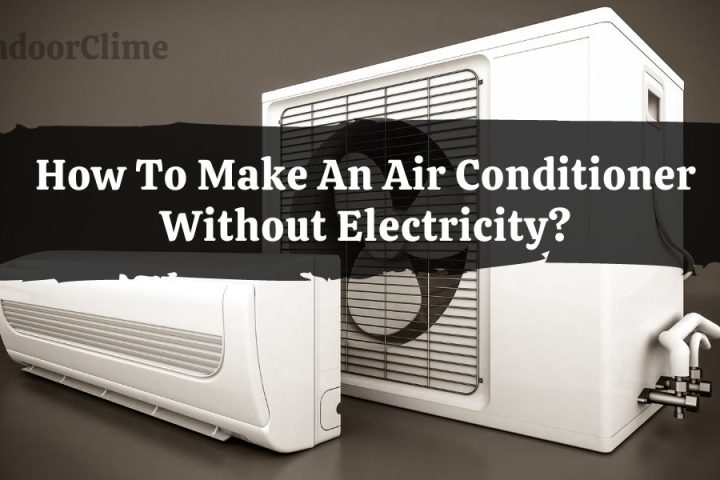There are several reasons your air conditioner’s airflow is weak, and several potential issues could be the culprit, from an air filter to a frozen evaporator coil.
While it may be tempting to call in a professional, you can troubleshoot a few of these problems.
What Are The Symptoms Of Weak Air Flow In AC?
1. Dirty Air Filter
A dirty air filter can restrict airflow and cause your AC unit to work harder than necessary.
When your air conditioner has dirty air filters, it can also cause your evaporator coil to freeze, and frozen coils and evaporators can potentially damage your AC unit.
A damaged or clogged air filter can decrease cooling performance while increasing energy consumption.
2. Clogged Condenser
The condenser is responsible for dissipating the heat that your AC unit produces. When the condenser cannot function efficiently, it could be because of a dirty or clogged filter.
Condensers that are blocked often lead to the AC’s evaporator coil freezing.
3. Refrigerant Leaks
The refrigerant in air conditioners works as a heat transfer fluid. A leakage reduces the ability of your AC unit to cool your home and can also cause your evaporator coil to freeze.
A low refrigerant level can cause your AC unit to run constantly without cooling your home effectively, and this results in increased energy consumption and can lead to costly repairs.
3. Frozen Evaporator Coil
It can be caused by various factors, including low refrigerant levels, dirty coils, or airflow issues.
If your evaporator coil is frozen, it can prevent air from flowing through your AC unit, and it might also cause your AC unit to shut down completely.
4. Ductwork Leaks
If your ductwork leaks, it can allow conditioned air to escape before reaching your living space.
It can lead to increased energy consumption and decreased cooling performance. You can check this by feeling the ductwork for any cool air leaks.
5. Thermostat Issues
The thermostat in air conditioners works by sensing the air temperature in your home and turning the AC unit on and off to maintain a comfortable temperature.
If your thermostat is not set correctly, it can prevent your AC unit from efficiently cycling on and off. It can lead to weak airflow and decreased cooling performance.
Why Air Conditioner Airflow Is Weak And How To Fix?
Clogged Air Filters

Neglect is the most common cause of a dirty air filter in an air conditioner. A dirty air filter can cause your AC unit to work harder than necessary and cause the evaporator coil to freeze.
You can fix this with regular maintenance. Assess for a dirty air filter every month, and replace it as necessary.
Inefficient Condenser
A clogged condenser can be caused by various factors, including a dirty or clogged filter.
If your condenser is blocked, you can clean it with a brush and hose, and you could also replace the filter and assess the airflow again.
Call a professional if the AC unit still doesn’t work after cleaning or replacing the condenser.
Faulty Refrigerant
A refrigerant leak can be caused by various factors, including a damaged coil, a faulty compressor, or an improperly installed AC unit.
If you have a refrigerant leak, it’s best to call a professional to repair it.
Frozen Evaporator Coil
Frozen evaporator coils can prevent air from flowing through your AC unit and might also cause your AC unit to shut down completely.
A faulty evaporator coil may also be because of low refrigerant levels, dirty coils, or airflow issues.
If you think your evaporator coil is frozen, you can try thawing it by turning off the AC unit and opening all the doors and windows.
You can also try using a hairdryer on the frozen coil. Clean the evaporator coil using a brush and hose if it’s dirty.
Inefficient Thermostat
Thermostat issues can prevent your AC unit from cycling on and off correctly, leading to weak airflow and decreased cooling performance. The thermostat could also be the reason why an AC unit overheats.
You can fix this by checking the thermostat settings and ensuring they’re correct.
To save on electricity, you can set the thermostat at around -3 degrees Fahrenheit and consider investing in a programmable thermostat to automate this process.
How to Improve HVAC Airflow?

Check Air Filters Monthly And Replace Them When Necessary
Ideally, it would be best to replace the air filters in your AC unit every month. However, depending on the environment and usage, you might need to replace them more frequently.
If you live in a dusty area or have pets, you might need to replace your air filter every two weeks. Check the manufacturer’s recommendations for more specific maintenance guidance.
Clean the Condenser Coils
The condenser coils can become dirty over time, impacting your AC unit’s efficiency. You can clean the coils with a brush and hose and use only mild soap and water when cleaning the coils.
Assess for any damages by looking for cracks, holes, or other signs of wear and tear. If it looks worn out, consider replacing this.
Clean the Evaporator Coils
The evaporator coils can also become dirty over time, which can impact the efficiency of your AC unit. You can clean this using mild soap and soft cloth-like condenser coils.
Regularly clean the evaporator coils at least once a year. When you notice old and worn-out evaporator coils, it would be best if you replace this as soon as possible.
Check For Leaks And Repair Them.
Leaks in the AC unit can cause the refrigerant to escape, which can impact the efficiency of your AC unit. Look for cracks or holes in the coils, compressor, or tubing to check for leaks.
If you find any leaks, you can repair them using a sealant. However, you must call a repair professional if the leak is too big.
Make Sure the AC Unit Is Installed Correctly.
If your AC unit isn’t installed correctly, it can cause problems, including weak airflow. Ensure the unit is installed in a well-ventilated area to ensure proper airflow.
You should also check that the ductwork is installed correctly and that there are no leaks. The ductwork that isn’t properly sealed can cause up to 30% of the air to escape, which can impact the efficiency of your AC unit.
Check for ductwork leaks.
Ductwork leaks can cause the conditioned air to escape, increasing energy consumption and decreasing cooling performance. You can check for leaks by looking for cracks or holes in the ductwork.
How to Calculate Your HVAC Airflow?
As any homeowner knows, HVAC systems are vital for keeping a comfortable home, and they regulate temperature and help filter out dust and other particulates from the air.
However, HVAC systems can be expensive to operate, and their efficiency can be significantly affected by the ductwork size.
If the ducts are too small, the system will work harder to keep the home heated or cooled, leading to higher energy bills and decreased comfort.
On the other hand, the airflow velocity will be compromised if the ductwork is too large, which means that you may not be able to feel it through the vents.
As a result, it is vital to ensure that your ductwork is correctly sized to maximize comfort and efficiency.
The complex formula considers many factors, including the square footage of your home, the size of your unit, and the necessary airflow velocity.
This can be a lot for the average homeowner to wrap their head around, so HVAC professionals have tools to make the process smoother.
But understanding the basics of ductwork sizing can help you be more informed when working with an HVAC contractor.
So let’s take a closer look at what you’ll need to know to compute the ductwork sizing for your home.
To start, you’ll need to know your home’s square footage and each room’s square footage. These measurements will determine the cubic feet per minute (CFM) calculations.
The CFM is an important number in determining the size and power of your HVAC unit and the static pressure and friction loss rate of your ductwork system.
To calculate your home’s CFM, you’ll need to know the size of your heating or cooling unit in tons. To find this number, multiply the unit size by 400.
This number is the average output of an HVAC unit. Once you have that number, divide it by the total square footage of your home. This will give you the multiplier for all your rooms’ CFM.
How to Balance HVAC Airflow?

To balance HVAC airflow, you must know how to calculate CFM for each room.
Once you have that number, you can adjust the damper for each room to ensure each room has the correct amount of airflow.
If you have a significantly larger or smaller room than the others, you may need to adjust the CFM accordingly.
You can add or remove vents from the room or use a booster fan to increase or decrease the airflow.





